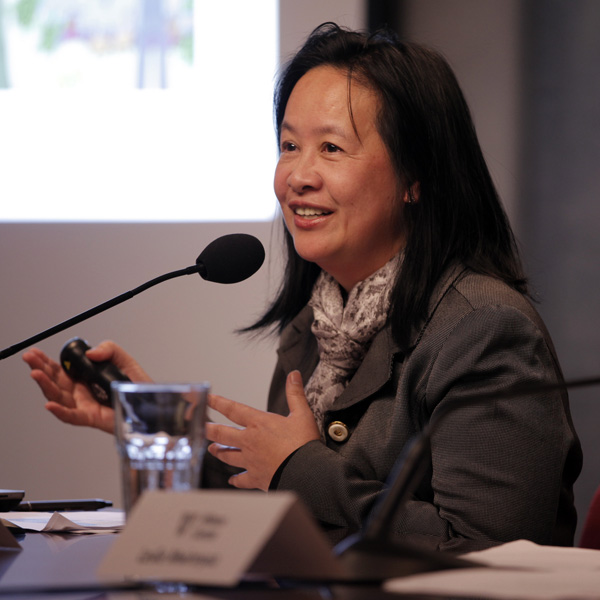-
Joan Castro on Engaging Youth to Create Change in the Philippines

“Exposing young people to information about PHE [population, health, and environment] and food security dynamics can be a powerful tool to steer their interests and commitment to care for the environment and become sexually responsible individuals,” says PATH Foundation Philippines, Inc. (PFPI)’s Joan Castro in this week’s podcast.
PFPI’s Youth EMPOWER project has trained close to 300 “youth peer educators” in the southern Philippines to promote environmentally sustainable livelihoods, clean up the environment, raise awareness of reproductive health, and encourage participation in local government.
“Exposing young people to information about PHE [population, health, and environment] and food security dynamics can be a powerful tool to steer their interests and commitment to care for the environment and become sexually responsible individuals,” says PATH Foundation Philippines, Inc. (PFPI)’s Joan Castro in this week’s podcast.
PFPI’s Youth EMPOWER project has trained close to 300 “youth peer educators” in the southern Philippines to promote environmentally sustainable livelihoods, clean up the environment, raise awareness of reproductive health, and encourage participation in local government.
Ten to nineteen year-olds make up 22 percent of the Philippines’ overall population, and in the south, where migration from nearby countries is highest, the ratio is even higher. Access to contraceptives is low in remote island villages, says Castro, and high fertility and teenage pregnancy is common. The country as a whole is highly reliant on marine resources for food and income. Unemployment is high.
By combining population, health, and environment development interventions in one project and putting a strong emphasis on providing livelihood skills and participation in local government, Castro says PFPI has generated enthusiasm for change not only among young people, but also their parents. “This is one of the most important [things] that we’ve learned in this project – engage the parents of the [youth peer educators],” she says. “The support of parents is key to securing youth involvement and sustaining [youth peer educator] volunteerism. Youth gain confidence in their ability to become a leader and agents of change because of the goodwill and affirmation of their parents.”
Castro spoke at the Wilson Center on April 30. Download her slides to follow along.
Friday podcasts are also available for download from iTunes.
 A Publication of the Stimson Center.
A Publication of the Stimson Center.



